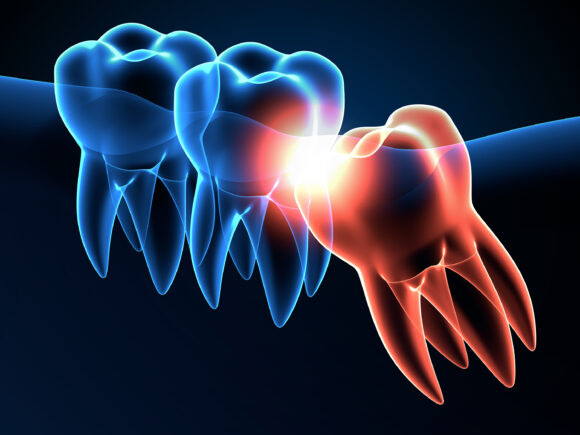A county judge improperly took sides when he threw out expert testimony and dismissed a medical malpractice case, Maryland’s high court ruled Thursday.
The Maryland Court of Appeals revived a lawsuit filed by a patient who says she lost the sense of feeling in her tongue after a dental surgeon extracted her wisdom teeth. A Calvert County Circuit Court judge had granted summary judgment in favor of two dentists after finding that the testimony by the plaintiff’s two medical experts was not credible.
“The conflicting evidence on these issues teed up a classic credibility contest for the jury — not the court — to resolve,” the opinion says. “By taking those factual issues away from the jury, the circuit court erred.”
Dr. Bennet Frankel removed Casey Lou Deane’s upper and lower wisdom teeth in January 2016. At a follow-up appointment, Deane complained about pain and a tingling sensation on her tongue. She missed a second follow-up, saying that she did not want to go back to Frankel because when she complained that her tongue was numb, he told her she was “okay” and the problem would resolve.
In April 2016, Deane was seen by another dentist at Frankel’s office, Dr. Clay Kim. She says she told Kim that she had no feeling on both sides of her tongue and had difficulty eating. Kim’s notes state that only a portion of the tongue was numb. The doctor also wrote that Deane may need to be referred to a nerve specialist, but Deane said he never mentioned that during her office visit.
Deane did some research and learned that her symptoms were consistent with a bilateral lingual nerve injury. She spoke to an attorney, who referred her to Dr. Richard Kramer, a specialist in oral surgery.
Kramer conducted sensory tests and diagnosed Deane with bilateral neurotmesis. In his opinion, Frankel had severed the lingual nerve while extracting Deane’s wisdom teeth.
Deane filed a malpractice lawsuit against Frankel and Kim. Dr. Kramer and a Dr. Armond Kotikian, a medical doctor and oral surgeon, testified that the standard of care for wisdom tooth extractions requires the dentist to protect the ulnar nerve.
The Circuit Court held a hearing to determine if doctors’ testimony was admissible. The judge issued a 97-page memorandum order explaining why it was not.
The trial court noted that the plaintiff’s experts did not review the treating dentists’ notes yet gave different opinions about what had transpired. Also, Deane had failed to show up for a follow-up appointment that may have resulted in a referral to a nerve specialist.
Deane appealed and the Court of Special Appeals vacated the Circuit Court’s ruling. Frankel and Kim appealed, bringing the dispute up the Court of Appeals.
The high court’s opinion says the trial court engaged in fact-finding that should have been left up to a jury, interpreted evidence in a light most favorable to the defendant instead of the plaintiff and misinterpreted prior case law.
The court sent the case back to Calvert County Circuit Court with instructions that it be assigned to a different judge to avoid any appearance of partiality.
One justice dissented because of a technical disagreement about which standard of evidence should have been used, but did not disagree with the court’s finding that the trial court had improperly thrown out the expert testimony.
Was this article valuable?
Here are more articles you may enjoy.


 Portugal Rolls Out $2.9 Billion Aid as Deadly Flooding Spreads
Portugal Rolls Out $2.9 Billion Aid as Deadly Flooding Spreads  Tesla Sued Over Crash That Trapped, Killed Massachusetts Driver
Tesla Sued Over Crash That Trapped, Killed Massachusetts Driver  Charges Dropped Against ‘Poster Boy’ Contractor Accused of Insurance Fraud
Charges Dropped Against ‘Poster Boy’ Contractor Accused of Insurance Fraud  Navigators Can’t Parse ‘Additional Insured’ Policy Wording in Georgia Explosion Case
Navigators Can’t Parse ‘Additional Insured’ Policy Wording in Georgia Explosion Case 